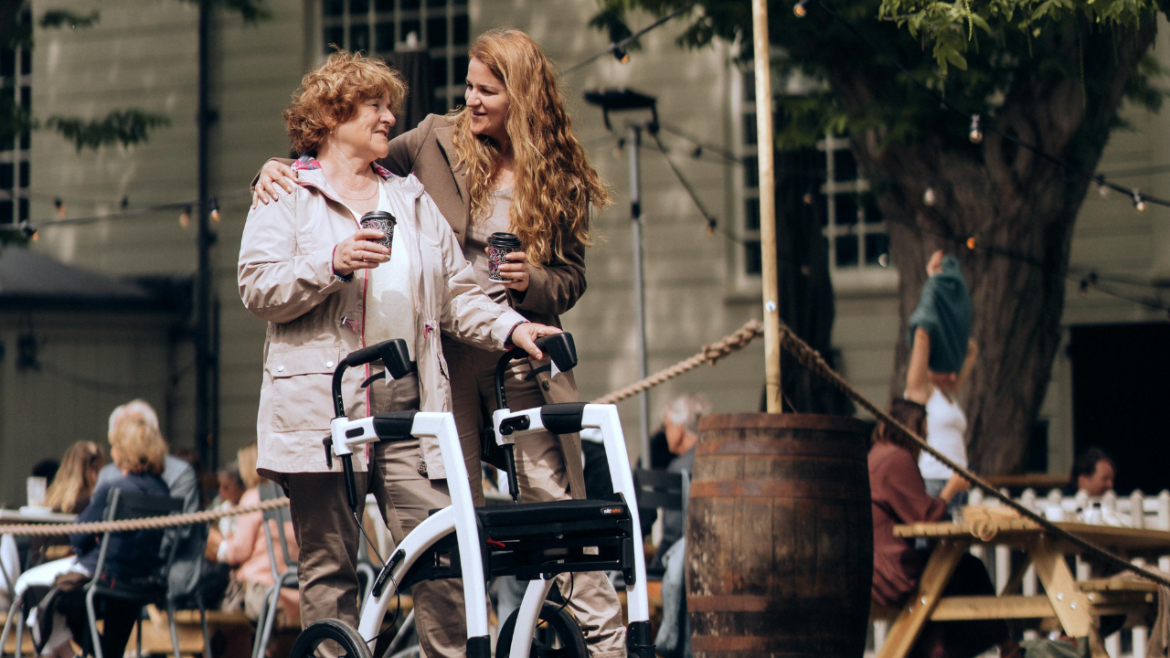Ways To Help A Loved One Manage Parkinson’s Disease
When someone you love is diagnosed with Parkinson’s disease, the world seems to shift. The future becomes uncertain, filled with both questions and fears. Parkinson’s changes more than just movement — it affects speech, emotions, and even the smallest daily tasks.
But within this challenge lies a powerful opportunity: the chance to show love through care, patience, and understanding. Helping a loved one manage Parkinson’s disease means walking beside them with compassion while learning how to make life as fulfilling and comfortable as possible.
Understanding The Journey Together
Parkinson’s disease is a progressive neurological disorder that affects the brain’s ability to control movement. Tremors, stiffness, slowness, and balance problems become daily realities. Yet, what often goes unnoticed is the emotional toll it takes on both the patient and the caregiver. The journey requires strength, empathy, and a willingness to adapt to constant change.
Understanding the condition is one of the most loving acts a caregiver can offer. Knowledge transforms fear into confidence. Learning about symptoms, medications, and physical changes helps families prepare for what lies ahead. When caregivers understand that Parkinson’s is not a single event but an evolving journey, they can better provide support that adjusts with time. The more informed you are, the more effectively you can anticipate needs and reduce anxiety for both you and your loved one.
Encouraging Movement And Physical Strength
One of the most important ways to help someone with Parkinson’s is to encourage safe, consistent movement. Physical activity helps maintain flexibility, balance, and overall strength. While every person’s abilities differ, even gentle exercise can bring remarkable benefits. Activities like walking, stretching, or guided physical therapy sessions can slow stiffness and enhance mobility.
However, it is not just about the physical benefits — movement also nurtures emotional well-being. Exercise can lift mood, reduce depression, and create a sense of achievement. Encouraging participation in enjoyable physical activities helps your loved one feel capable, reminding them that Parkinson’s may alter life, but it does not end it. When approached with patience and positivity, movement becomes a symbol of hope, not hardship.
Supporting Daily Independence
As Parkinson’s progresses, simple daily routines can become difficult. Buttoning a shirt, writing a note, or preparing a meal may require more effort than before. The natural instinct for caregivers is to take over, but doing everything for your loved one can unintentionally diminish their sense of independence. The key is balance — providing help when needed while still allowing space for self-sufficiency.
Adaptive tools and home adjustments can make this possible. Weighted utensils, non-slip mats, and clothes designed for easier dressing can empower independence while reducing frustration. Each small accommodation sends a message that dignity remains intact. When seniors feel capable in their environment, their confidence and emotional well-being improve, which helps slow the impact of Parkinson’s on their daily lives.
Communication And Emotional Understanding
Parkinson’s disease can affect speech and facial expressions, sometimes making communication challenging. Loved ones may feel misunderstood or ignored simply because their words come slower or their tone sounds different. Caregivers can make a profound difference by practicing patience and listening beyond the words. Maintaining eye contact, giving time to respond, and using gentle cues all help bridge communication gaps.
Equally important is emotional understanding. Many living with Parkinson’s experience frustration, sadness, or anger as their independence changes. Compassion, not correction, should always guide interactions. A calm voice, kind reassurance, and steady presence can bring comfort even in difficult moments. Sometimes, it is not about offering solutions but about simply being there — a reminder that they are not alone in the struggle.
Building A Support System
No caregiver should face Parkinson’s alone. The emotional demands of the condition can be heavy, and support systems are essential. Connecting with healthcare professionals, local support groups, or online communities provides both education and emotional relief. Families who share their experiences with others walking the same path often find renewed strength and understanding.
Encouraging your loved one to participate in group activities or therapy sessions can also help combat isolation. Shared experiences remind them that others understand their challenges and that their feelings are valid. Parkinson’s can make the world feel smaller, but with the right support network, that world becomes manageable again.
Finding Hope And Meaning
Helping a loved one manage Parkinson’s disease is not only about medical care or symptom management; it is about nurturing a life filled with meaning. Celebrating small victories — a steady step, a shared laugh, or a peaceful evening — reminds both patient and caregiver that joy still exists amid difficulty.
The journey may be unpredictable, but love brings stability. Compassion, patience, and understanding are the most powerful tools available. Parkinson’s may change the rhythm of life, but it cannot erase the bond that love creates. Each day spent offering care is a testament to devotion, transforming hardship into purpose.

